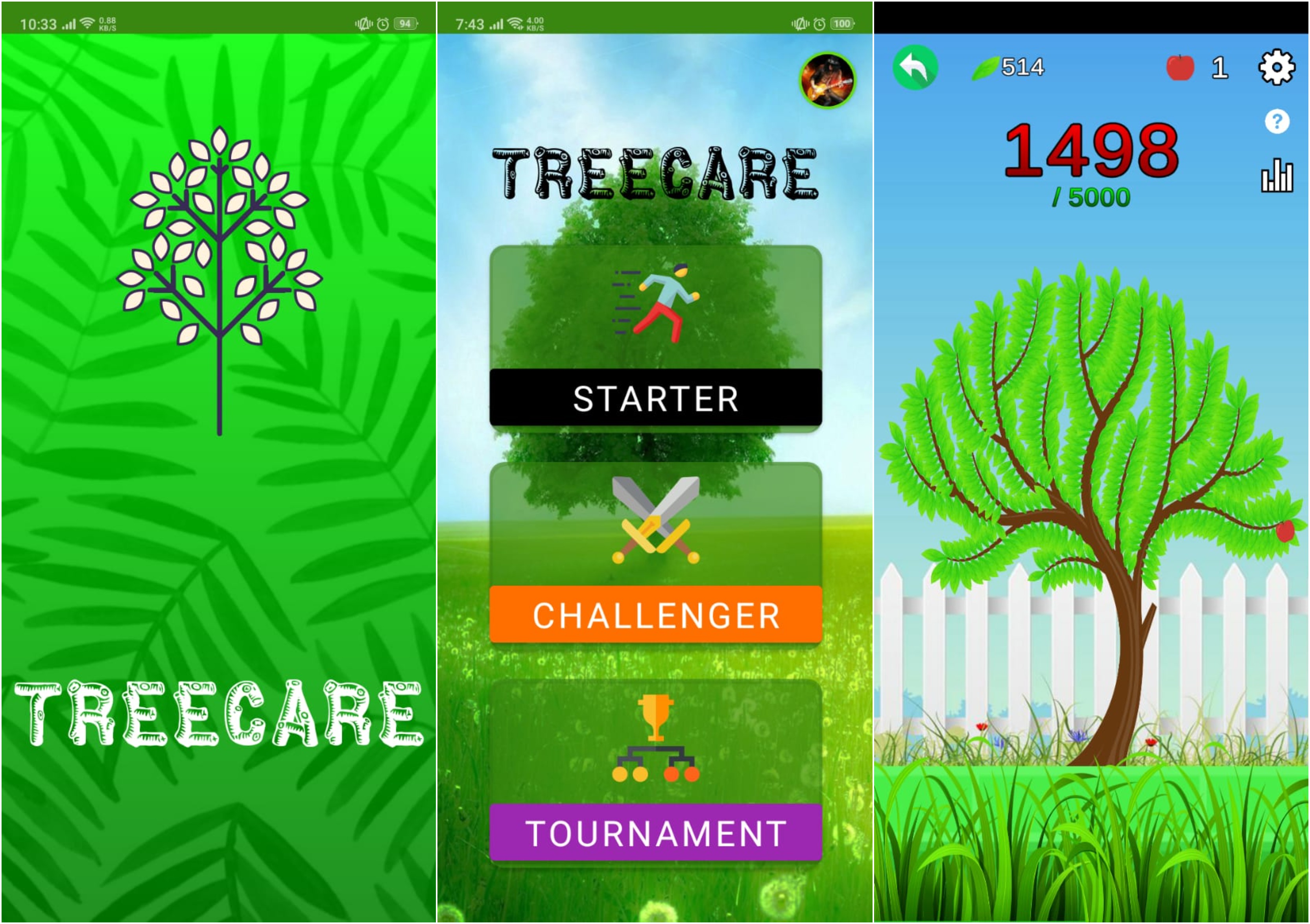TREECARE
Background
Despite the availability of step tracking apps, motivating users to stay active has always been a challenge. The factors that motivate users are different and, not every app is the same when it comes to persuading the user to engage in physical activity.
We built TreeCare with twelve widely used persuasive principles (based on the Persuasive Systems Design framework) in health games and evaluated it with 23 users for 3-weeks. TreeCare significantly improved users' physical activity levels (their daily step count increased) and, users found the app to be effective.

APP-OVERVIEW
TreeCare is a persuasive step tracker that aims to motivate users to stay physically active and curb sedentary behaviour. The app uses a tree as a metaphor that reflects the user's physical activity level. The tree blooms if the user is active and withers if the user stays inactive. Apart from this, the game had other features like sedentary reminders and, various game modes to keep the users motivated.
App Design & Development
- Tools Used - Balsamiq was used for designing the prototype sketches. An intern started developing the app and, I continued after that. I used Android Studio for building the app, Unity Game Engine for the game (Tree Simulation) and Google Cloud Firestore as a database for tracking user's steps.
- Game Design - I implemented twelve persuasive principles from the PSD framework. A few examples of the features are Leaderboard for Competition, Sedentary Reminder, Progress Tracker, Teams and Tournament for group based competition. The app has three game modes: Starter, Challenger & Tournament mode. Users can track their steps and set personal step goals in the Starter mode. In the Challenger mode, users can create challenges and compete with other users in the challenge.
- Users can join a team to compete with other teams in the Tournament mode. Users can also create a team and invite their friends to their team. For every mode, if the step goal is reached continuously for a week, a fruit appears on the tree to signify the users' continuous effort. The app also has an activity recognition feature to remind the users to walk when they are sedentary for 30 minutes or when they travel by vehicle.
TreeCare: PROTOTYPE
Study Design & Evaluation
- Study Design - We asked the users to fill up a pre-study survey to get to know about their self-reported activity levels. After this, we measured their Baseline data (steps) for a week while the app features were disabled. We evaluated the app in the wild with 23 users from various parts of the world over a period of three weeks. After the study, the users answered the post-study survey and, the Ph.D. student interviewed the users.
- Results - When we compared users' steps with their baseline data, it was visible that their physical activity (steps) increased by nearly 20% after using the app. About 87% of the users found the app to be effective for improving their lifestyle. Users were able to relate their physical health to the tree's health.
- From the analysis of survey data, it was evident that users found the suggestion feature to be persusaive, followed by the progress tracker and other features. From the qualitative analysis, it was evident that users felt bad when they lost fruits from their tree for not consistently maintaining their step goals. They also liked the daily steps goal reminder that motivated them to walk every day. We published our work @ IEEE Conference on Games.




